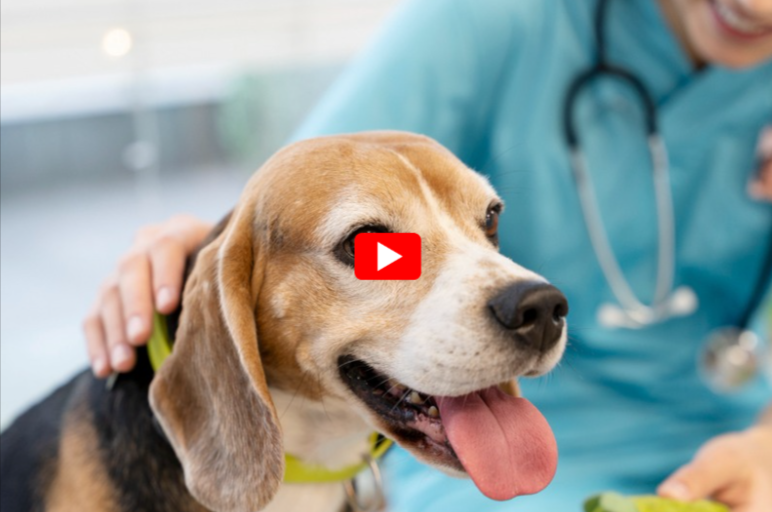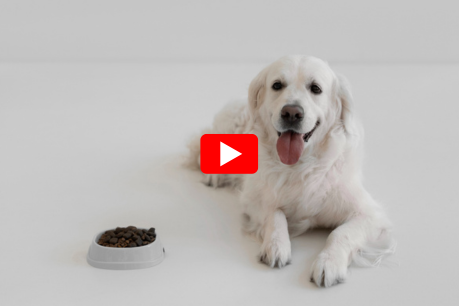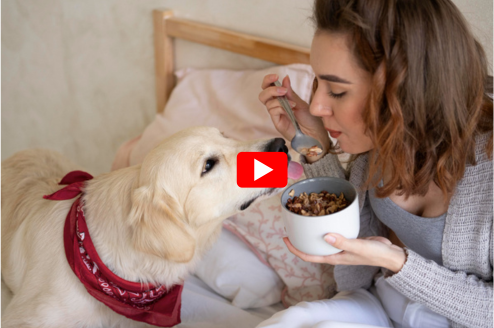Dhpp Vaccine: What It Is, Schedule, and Side Effects!
When it comes to keeping your furry friend healthy and safe, vaccinations play a critical role. One of the most essential vaccines for dogs is the DHPP vaccine, often administered during puppyhood and as part of regular booster shots throughout a dog’s life.
If you’re a dog parent or considering adopting a pup, it’s crucial to understand what the DHPP vaccine is, how it works, the diseases it protects against, and why it’s considered a “core” vaccine in veterinary medicine.
The DHPP vaccine is a core canine vaccine protecting dogs from deadly diseases like distemper, hepatitis, parvovirus, and parainfluenza.
In this comprehensive guide, we’ll explore everything you need to know about the DHPP vaccine, including its benefits, recommended schedule, possible side effects, and answers to frequently asked questions.
What Is the DHPP Vaccine?
The DHPP vaccine is a combination vaccine designed to protect dogs from four highly contagious and potentially fatal viruses:
- D — Canine Distemper
- H — Canine Hepatitis (Adenovirus Type 1)
- P — Canine Parvovirus
- P — Parainfluenza
This multivalent vaccine is often referred to as a “5-in-1” vaccine when leptospirosis is added (DHLPP), but the core DHPP vaccine focuses on these four dangerous diseases that can be devastating to a dog’s health.
The Diseases the DHPP Vaccine Protects Against
Let’s take a closer look at each of the illnesses the DHPP vaccine guards against:
Canine Distemper
Cause: Canine distemper virus (CDV)
Transmission: Airborne exposure through sneezing, coughing, and sharing food or water.
Symptoms:
- Fever
- Nasal and eye discharge
- Coughing
- Vomiting
- Diarrhea
- Neurological symptoms like seizures and paralysis
Why It’s Serious: Distemper is often fatal, particularly in puppies and unvaccinated adult dogs. Survivors may experience permanent nervous system damage.
Canine Hepatitis (Adenovirus Type 1)
Cause: Canine adenovirus type 1
Transmission: Contact with infected saliva, urine, blood, or feces
Symptoms:
- Fever
- Abdominal pain
- Lethargy
- Enlarged tonsils
- Jaundice
- Vomiting and diarrhea
Why It’s Serious: This virus affects the liver, kidneys, and blood vessels. Severe cases can lead to death.
Canine Parvovirus
Cause: Canine parvovirus
Transmission: Direct contact with infected feces or contaminated environments
Symptoms:
- Severe, bloody diarrhea
- Vomiting
- Dehydration
- Lethargy
- Loss of appetite
Why It’s Serious: Highly contagious and life-threatening, especially for puppies and unvaccinated dogs. Without prompt treatment, it can be fatal.
Parainfluenza
Cause: Canine parainfluenza virus
Transmission: Airborne via coughing and sneezing
Symptoms:
- Dry, hacking cough
- Nasal discharge
- Fever
- Lethargy
- Loss of appetite
Why It’s Serious: Although not typically fatal alone, it can contribute to kennel cough, a contagious respiratory disease.
Why Is the DHPP Vaccine Important?
The DHPP vaccine is considered acore vaccine by the American Animal Hospital Association (AAHA) and other veterinary organizations.
Core vaccines are those recommended for all dogs, regardless of breed, age, or lifestyle, because of the severity of the diseases they prevent and the risk of exposure.
Even if your dog spends most of its time indoors, these diseases can spread through indirect contact, such as on your shoes, clothing, or visiting animals.
DHPP Vaccine Schedule for Dogs
🐶 Puppy Vaccination Schedule
- 6–8 weeks old: 1st DHPP shot
- 10–12 weeks old: 2nd DHPP shot
- 14–16 weeks old: 3rd DHPP shot
🐕 Adult Dog Booster Shots
- 1 year after final puppy shot: 1st booster
- Every 1–3 years thereafter: Based on vet recommendations and local regulations
This schedule may vary slightly based on your vet’s advice, your dog’s health history, and regional disease risks.
Is the DHPP Vaccine Safe?
Yes — the DHPP vaccine is generally considered safe and effective. Millions of dogs receive this vaccine yearly without issue. However, like all vaccines, there can be mild to moderate side effects.
Possible Side Effects of the DHPP Vaccine
Most dogs experience no significant problems, but minor side effects may include:
- Mild fever
- Swelling or soreness at the injection site
- Decreased appetite
- Mild fatigue
Rarely, serious allergic reactions can occur, such as:
- Facial swelling
- Hives
- Vomiting
- Difficulty breathing
If any severe reaction is noticed, contact your veterinarian immediately.
Can Dogs Skip the DHPP Vaccine?
While it might be tempting to forgo vaccinations, especially if your dog stays indoors or isn’t frequently around other animals, the risks far outweigh the benefits.
Many of these viruses are highly resilient in the environment and can be transmitted indirectly.
Skipping the DHPP vaccine puts your dog at significant risk of contracting potentially fatal diseases. It can also pose a public health risk, especially in multi-pet households, dog parks, or boarding facilities where disease can spread rapidly.
How Much Does the DHPP Vaccine Cost?
The cost of the DHPP vaccine varies depending on location, clinic, and whether it’s included in a puppy vaccination package. On average:
- Puppy shots: $20–$50 per dose
- Adult booster: $40–$100
Many veterinary clinics offer wellness packages or vaccination clinics to make immunizations more affordable.
How Long Does DHPP Vaccine Protection Last?
After the initial puppy series and first adult booster, DHPP vaccine protection typically lasts 1–3 years, depending on your vet’s protocol, local regulations, and the specific vaccine used.
Annual titer tests (blood tests measuring immunity levels) are sometimes available to assess if boosters are necessary sooner.
Can a Dog Be Vaccinated Too Much?
While over-vaccination concerns do exist, most veterinarians follow updated AAHA guidelines to avoid unnecessary vaccinations. Titer testing is a reliable option for dogs with health concerns or owners wary of frequent vaccines.
Consult your vet about your dog’s specific needs, age, and health status when planning a vaccination schedule.
Are There Alternatives to the DHPP Vaccine?
There’s no natural or holistic substitute that provides the same reliable protection as the DHPP vaccine. Preventing these highly contagious and life-threatening diseases through vaccination remains the safest and most effective method.
DHPP vs. DHLPP: What’s the Difference?
While the DHPP vaccine covers four core diseases, DHLPP adds a fifth — Leptospirosis, a bacterial infection affecting the liver and kidneys, which can spread to humans.
Depending on your geographic region and your dog’s lifestyle (such as exposure to standing water or wildlife), your vet may recommend the DHLPP vaccine instead.
Conclusion
The DHPP vaccine is one of the most essential tools in ensuring your dog’s long, healthy life. It protects against some of the deadliest canine diseases, several of which have no effective cure once contracted.
By keeping your pet up to date on its vaccinations, you’re protecting not only your dog but also other pets and your community.
Vaccination protocols and schedules can vary, so always consult your veterinarian to establish the most appropriate plan for your furry friend.
References Link
- DHPP Vaccine for Dog: https://www.petmd.com/dog/general-health/dhpp-vaccination-for-dogs
- Vaccination of dogs: https://en.wikipedia.org/wiki/Vaccination_of_dogs
.



